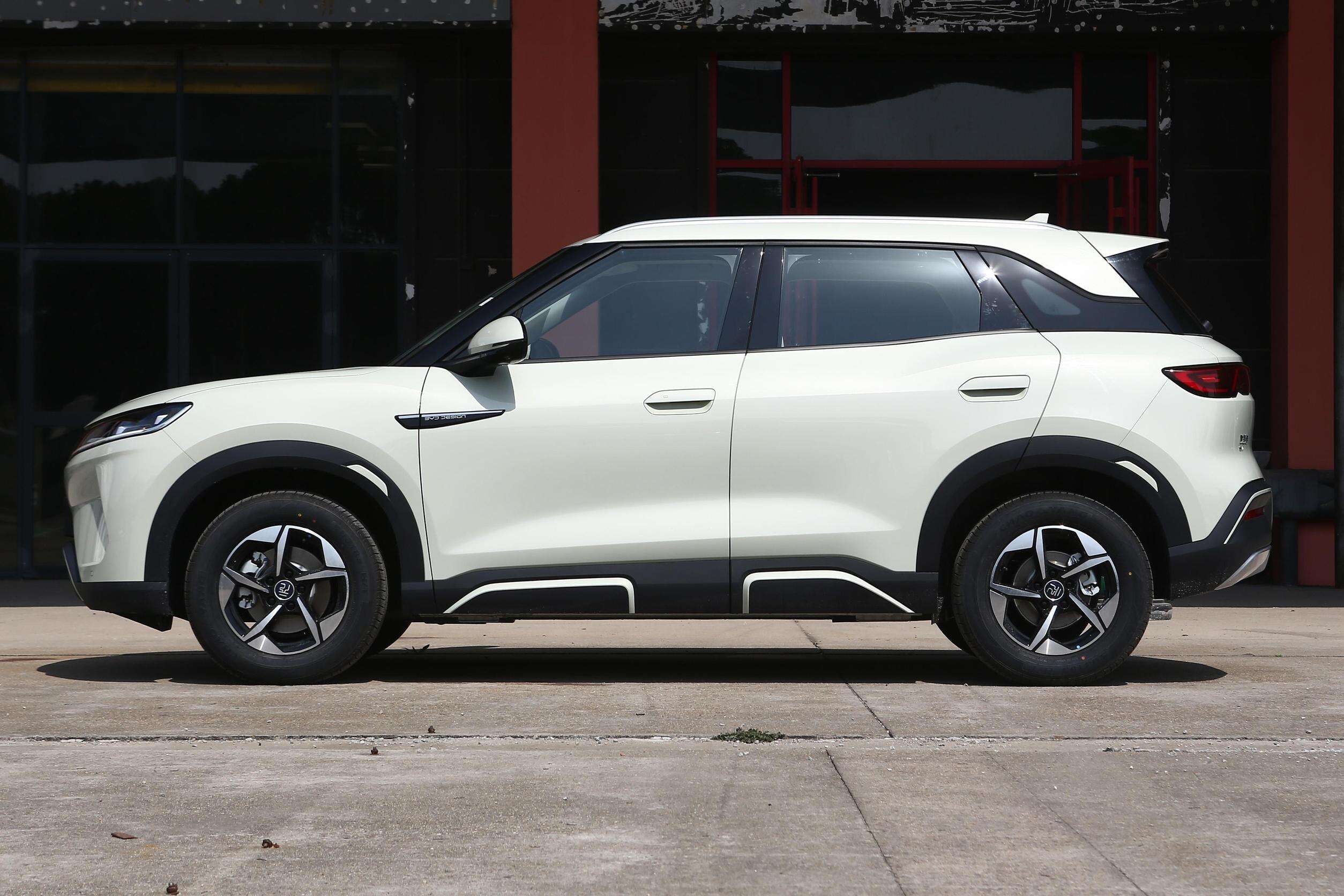ເມື່ອທ່ານຊື້ລົດ, ການເຂົ້າໃຈທາງເລືອກຂອງທ່ານແມ່ນສໍາຄັນ. ທ່ານຕ້ອງການໃຫ້ແນ່ໃຈວ່າທ່ານເລືອກລົດທີ່ ເຫມາະ ສົມກັບຄວາມຕ້ອງການແລະຮູບແບບຊີວິດຂອງທ່ານ. ໃຫ້ພວກເຮົາເລາະເລິກໃນບາງພື້ນທີ່ສໍາຄັນ ທີ່ຕ້ອງໄດ້ສຸມໃສ່ ໃນລະຫວ່າງການຄົ້ນຄວ້າຂອງທ່ານ.
ເຂົ້າ ໃຈ ຄຸນ ລັກ ສະ ນະ ຂອງ ລົດ
ລົດໃນມື້ນີ້ມີຄຸນລັກສະນະທີ່ຫຼາກຫຼາຍ. ຮູ້ ວ່າ ມີ ຫຍັງ ໃນ ແຕ່ ລະ ຫນ້າ ທີ່ ຈະ ຊ່ວຍ ໃຫ້ ເຈົ້າ ຕັດສິນ ໃຈ ໄດ້ ຢ່າງ ມີ ຄວາມ ຮູ້.
ຄຸນລັກສະນະຄວາມປອດໄພ
ຄວາມປອດໄພຄວນເປັນບູລິມະສິດສູງສຸດເມື່ອເລືອກລົດ. ຊອກຫາຄຸນລັກສະນະເຊັ່ນ: ຖົງອາກາດ, ບຣອກຕ້ານການກັດ, ແລະຄວບຄຸມຄວາມຫມັ້ນຄົງເອເລັກໂຕຣນິກ. ເຫຼົ່ານີ້ສາມາດປົກປ້ອງທ່ານແລະຜູ້ໂດຍສານຂອງທ່ານໃນກໍລະນີເກີດອຸບັດຕິເຫດ. ເຕັກໂນໂລຊີຄວາມປອດໄພທີ່ກ້າວ ຫນ້າ ເຊັ່ນ: ເຕືອນການອອກຈາກເສັ້ນທາງລົດແລະອັດຕະໂນມັດຄວາມກົດດັນສຸກເສີນ, ຍັງສາມາດປັບປຸງປະສົບການໃນການຂັບຂີ່ຂອງທ່ານ.
ເຕັກໂນໂລຊີ ແລະ ການເຊື່ອມຕໍ່
ລົດສະໄຫມໃຫມ່ ມີເຕັກໂນໂລຊີທີ່ເຮັດໃຫ້ຂັບລົດມີຄວາມມ່ວນຊື່ນ ແລະ ສະດວກສະບາຍຂຶ້ນ ພິຈາລະນາຄຸນສົມບັດເຊັ່ນ: ການເຊື່ອມຕໍ່ Bluetooth, ລະບົບການ ນໍາ ທາງ, ແລະຈໍສະແດງຜົນທີ່ ສໍາ ພັດ. ສິ່ງເຫຼົ່ານີ້ສາມາດເຮັດໃຫ້ທ່ານຕິດຕໍ່ ແລະບັນເທີງໃນເສັ້ນທາງ. ໃຫ້ແນ່ໃຈວ່າເຕັກໂນໂລຢີຂອງລົດສອດຄ່ອງກັບຄວາມມັກແລະຄວາມຕ້ອງການຂອງທ່ານ.
ປະເພດນໍ້າມັນເຊື້ອໄຟ ແລະ ປະສິດທິພາບ
ປະສິດທິພາບຂອງນໍ້າມັນເຊື້ອໄຟ ມີຜົນກະທົບຕໍ່ຄ່າໃຊ້ຈ່າຍໃນໄລຍະຍາວ ແລະ ຜົນກະທົບຕໍ່ສິ່ງແວດລ້ອມ. ການເຂົ້າໃຈປະເພດນໍ້າມັນເຊື້ອໄຟທີ່ແຕກຕ່າງກັນ ສາມາດນໍາພາການເລືອກຂອງທ່ານ.
ນ້ໍາມັນເຊື້ອໄຟ vs ນ້ໍາມັນດິເຊວ
ເຄື່ອງຈັກນໍ້າມັນເຊື້ອໄຟແມ່ນທົ່ວໄປແລະມັກຈະລາຄາຖືກກວ່າກ່ອນ. ພວກມັນສະ ເຫນີ ການຂີ່ທີ່ສະບາຍແລະງຽບໆ. ເຄື່ອງຈັກ Diesel ໃນທາງກົງກັນຂ້າມ, ໃຫ້ການປະຫຍັດນ້ໍາມັນທີ່ດີກວ່າແລະ torque ຫຼາຍ, ເຊິ່ງເປັນທີ່ດີສໍາລັບ pulling. ແຕ່ວ່າໃນເບື້ອງຕົ້ນມັນອາດຈະມີຄ່າໃຊ້ຈ່າຍຫຼາຍຂຶ້ນ ແລະ ຈໍາ ເປັນຕ້ອງຮັກສາໃຫ້ດີຂຶ້ນ.
ທາງເລືອກ Hybrid ແລະ Electric
ລົດ Hybrid ແລະ ລົດໄຟຟ້າ ກໍາ ລັງໄດ້ຮັບຄວາມນິຍົມຍ້ອນຄວາມເປັນມິດກັບສິ່ງແວດລ້ອມແລະປະສິດທິພາບຂອງພວກເຂົາ. ລົດ Hybrid ໃຊ້ພະລັງງານທັງນໍ້າມັນ ແລະ ໄຟຟ້າ, ສະ ເຫນີ ໄລຍະທາງທີ່ດີກວ່າ. ລົດໄຟຟ້າ (EVs) ດໍາ ເນີນການດ້ວຍໄຟຟ້າເທົ່ານັ້ນ, ຫຼຸດຜ່ອນການປ່ອຍອາຍພິດ. ພິຈາລະນາທາງເລືອກເຫຼົ່ານີ້ ຖ້າເຈົ້າກໍາລັງຊອກຫາທາງເລືອກທີ່ຂຽວກວ່າ.
ພິຈາລະນາ ຄ່າ ໃຊ້ ຈ່າຍ ເພີ່ມ
ການຊື້ລົດບໍ່ພຽງແຕ່ມີລາຄາທີ່ຕິດຢູ່ເທິງສະຕິກເກີເທົ່ານັ້ນ. ການ ໃຊ້ ຈ່າຍ ທີ່ ເພີ່ມ ຂຶ້ນ
ພາສີ ແລະ ຄ່າ ທໍາ ນຽມ
ເມື່ອທ່ານຊື້ລົດ, ທ່ານຈະຕ້ອງຈ່າຍພາສີແລະຄ່າ ທໍາ ນຽມ. ການ ເກັບ ກໍາ ເງິນ ເຟີ້ ກວດເບິ່ງກົດລະບຽບທ້ອງຖິ່ນຂອງທ່ານ ເພື່ອເຂົ້າໃຈວ່າ ທ່ານຈະຕ້ອງຫນີ້ຫຍັງ. ນີ້ຈະຊ່ວຍທ່ານຫລີກລ້ຽງການແປກໃຈທີ່ຮ້ານຂາຍເຄື່ອງ.
ບໍາລຸງຮັກສາແລະສ້ອມແປງ
ການ ປຸງ ແຕ່ງ ລົດ ໃຫ້ ດີ ການ ໃຊ້ ເງິນ ເພື່ອ ປ່ຽນ ນ້ໍາ ມັນ, ປ່ຽນ ຢາງ ແລະ ກວດກາ ເບຣກ ການ ປັບປຸງ ລົດບາງລຸ້ນມີຄ່າໃຊ້ຈ່າຍໃນການ ບໍາ ລຸງຮັກສາສູງຂື້ນຍ້ອນສ່ວນພິເສດຫຼືແຮງງານ. ຄົ້ນຄວ້າ ເບິ່ງ ວ່າ ລົດ ຈະ ຫນ້າ ເຊື່ອຖື ໄດ້ ບໍ່ ເພື່ອ ຄາດ ວ່າ ຈະ ໃຊ້ ຈ່າຍ ໃນ ອະນາຄົດ.
ການ ຕັດສິນ ໃຈ ທີ່ ມີ ຄວາມ ຫມັ້ນ ໃຈ ການຂາຍລົດ 101 ເນັ້ນ ຫນັກ ເຖິງຄວາມ ສໍາ ຄັນຂອງການເຂົ້າໃຈຄຸນລັກສະນະ, ປະເພດນໍ້າມັນເຊື້ອໄຟ, ແລະຄ່າໃຊ້ຈ່າຍເພີ່ມເຕີມ. ຄວາມ ຮູ້ ນີ້ ຈະ ນໍາ ພາ ທ່ານ ໃນ ການ ເລືອກ ລົດ ທີ່ ເຫມາະ ສົມ ກັບ ຄວາມ ຕ້ອງການ ຂອງ ທ່ານ.
ການ ຂາຍ ລົດ 101: ວາງ ແຜນ ການ ໃຊ້ ຈ່າຍ ສໍາ ລັບ ການ ຊື້ ຂອງ ທ່ານ
ການຊື້ລົດແມ່ນການຕັດສິນໃຈດ້ານການເງິນທີ່ໃຫຍ່. ທ່ານ ຈໍາ ເປັນຕ້ອງວາງງົບປະມານທີ່ເປັນຈິງເພື່ອຮັບປະກັນວ່າທ່ານຈະບໍ່ໃຊ້ຈ່າຍເກີນໄປ. ໃຫ້ ເຮົາ ເລົ່າ ເຖິງ ວິທີ ທີ່ ເຈົ້າ ສາມາດ ຄຸ້ມ ຄອງ ການ ເງິນ ໄດ້ ຢ່າງ ມີ ປະສິດທິ ຜົນ.
ວາງ ແຜນ ໃຊ້ ຈ່າຍ ທີ່ ເປັນ ຈິງ
ການ ປະເມີນ ສະພາບ ການ ທາງ ດ້ານ ການ ເງິນ
ການ ຄຸ້ມ ຄອງ ເງິນ ຄິດໄລ່ລາຍຮັບ ແລະ ຄ່າໃຊ້ຈ່າຍປະຈໍາເດືອນຂອງທ່ານ. ນີ້ຈະຊ່ວຍໃຫ້ທ່ານຄິດໄລ່ໄດ້ວ່າທ່ານສາມາດໃຊ້ຈ່າຍໄດ້ຫຼາຍປານໃດໃນການຊື້ລົດ. ຢ່າລືມລວມຄ່າໃຊ້ຈ່າຍເຊັ່ນ: ປະກັນໄພ, ນໍ້າມັນເຊື້ອໄຟ, ແລະການ ບໍາລຸງຮັກສາໃນການຄິດໄລ່ຂອງທ່ານ. ການ ຮູ້ ຈັກ ຄວາມ ຈໍາ ກັດ ຂອງ ການ ໃຊ້ ຈ່າຍ ຈະ ຊ່ວຍ ເຈົ້າ ບໍ່ ໃຫ້ ໃຊ້ ຈ່າຍ ເກີນ ໄປ.
ເອົາ ຄວາມ ຕ້ອງການ ເປັນ ສິ່ງ ສໍາຄັນ ກວ່າ ຄວາມ ຕ້ອງການ
ຕໍ່ໄປ, ໃຫ້ຈໍາແນກລະຫວ່າງສິ່ງທີ່ທ່ານຕ້ອງການແລະສິ່ງທີ່ທ່ານຕ້ອງການໃນລົດ. ທ່ານຕ້ອງການລົດໃຫຍ່ ສໍາ ລັບການເດີນທາງຂອງຄອບຄົວຫລືລົດຂະ ຫນາດ ນ້ອຍພຽງພໍບໍ? ເຮັດລາຍຊື່ຂອງຄຸນລັກສະນະທີ່ຈໍາເປັນ ແລະ ສິ່ງທີ່ດີທີ່ຈະມີ. ນີ້ຈະຊ່ວຍໃຫ້ທ່ານສຸມໃສ່ລົດທີ່ຕອບສະ ຫນອງ ຄວາມຕ້ອງການຂອງທ່ານໂດຍບໍ່ມີການເພີ່ມເຕີມທີ່ບໍ່ ຈໍາ ເປັນທີ່ສາມາດເພີ່ມລາຄາ.
ການຄົ້ນຄວ້າທາງເລືອກການເງິນ
ເງິນກູ້ຢືມ ແລະ ອັດຕາດອກເບ້ຍ
ຖ້າທ່ານກໍາລັງພິຈາລະນາໃຫ້ກູ້ຢືມ, ໃຫ້ໄປຊື້ເຄື່ອງຢູ່ບ່ອນໃດບ່ອນຫນຶ່ງ ເພື່ອຫາອັດຕາດອກເບ້ຍທີ່ດີທີ່ສຸດ. ຜູ້ໃຫ້ເງິນກູ້ທີ່ແຕກຕ່າງກັນສະ ເຫນີ ເງື່ອນໄຂທີ່ແຕກຕ່າງກັນ, ສະນັ້ນປຽບທຽບໃຫ້ລະອຽດ. ອັດຕາດອກເບ້ຍທີ່ຕໍ່າກວ່າສາມາດຊ່ວຍໃຫ້ທ່ານປະຢັດເງິນໃນໄລຍະເວລາຂອງເງິນກູ້. ໃຫ້ແນ່ໃຈວ່າ ທ່ານເຂົ້າໃຈຂໍ້ກໍານົດ ກ່ອນທີ່ຈະລົງນາມຫຍັງ. ຄວາມຮູ້ນີ້ເປັນສ່ວນຫນຶ່ງຂອງ Car Sales 101 ແລະຈະຊ່ວຍໃຫ້ທ່ານຕັດສິນໃຈທີ່ມີຂໍ້ມູນ.
ການເຊົ່າທຽບກັບການຊື້
ການເຊົ່າລົດອາດຈະເປັນທາງເລືອກຖ້າທ່ານມັກການຈ່າຍເງິນເດືອນຕ່ ໍາ ແລະຂັບລົດ ໃຫມ່ ທຸກໆສອງສາມປີ. ແຕ່ວ່າ ການຊື້ລົດ ຫມາຍຄວາມວ່າ ເຈົ້າຈະເປັນເຈົ້າຂອງມັນທັນທີ ເມື່ອມັນຖືກຈ່າຍ. ພິຈາລະນາວິທີການ ດໍາ ລົງຊີວິດແລະແຜນການໄລຍະຍາວຂອງທ່ານເມື່ອຕັດສິນໃຈລະຫວ່າງການເຊົ່າຫລືຊື້. ແຕ່ລະທາງເລືອກມີຂໍ້ດີແລະຂໍ້ເສຍຂອງມັນ, ສະນັ້ນເລືອກສິ່ງທີ່ສອດຄ່ອງກັບເປົ້າ ຫມາຍ ຂອງທ່ານ.
ເຂົ້າ ໃຈ ຄ່າ ໃຊ້ ຈ່າຍ ດ້ານ ປະກັນ ໄພ
ປະເພດຂອງການປົກຄຸມ
ການປະກັນໄພແມ່ນສິ່ງທີ່ ຈໍາ ເປັນເມື່ອເປັນເຈົ້າຂອງລົດ. ຮູ້ຈັກກັນດີກັບປະເພດການປະກັນໄພທີ່ແຕກຕ່າງກັນ ເຊັ່ນ: ຄວາມຮັບຜິດຊອບ, ການຕໍາກັນ, ແລະ ການປະກັນໄພຢ່າງຄົບຖ້ວນ. ແຕ່ລະປະເພດສະ ຫນອງ ລະດັບການປ້ອງກັນທີ່ແຕກຕ່າງກັນ. ເລືອກເອົາການປົກປ້ອງທີ່ ເຫມາະ ສົມທີ່ສຸດກັບຄວາມຕ້ອງການແລະງົບປະມານຂອງທ່ານ. ນີ້ຮັບປະກັນວ່າທ່ານໄດ້ຮັບການປົກປ້ອງຢ່າງພຽງພໍໃນກໍລະນີເກີດອຸບັດຕິເຫດ.
ປັດໄຈທີ່ສົ່ງຜົນກະທົບຕໍ່ເງິນປະກັນ
ມີຫຼາຍປັດໃຈທີ່ສົ່ງຜົນກະທົບຕໍ່ຄ່າປະກັນໄພຂອງທ່ານ. ອາຍຸ, ປະຫວັດການຂັບຂີ່, ແລະປະເພດລົດທີ່ທ່ານຂັບສາມາດສົ່ງຜົນກະທົບຕໍ່ຄ່າໃຊ້ຈ່າຍ. ລົດທີ່ປອດໄພກວ່າດ້ວຍຄຸນລັກສະນະຄວາມປອດໄພທີ່ກ້າວ ຫນ້າ ມັກຈະມີຄ່າ ທໍາ ນຽມຕ່ ໍາ ກວ່າ. ການ ຄຸ້ມ ຄອງ ຄ່າ ປະກັນ ໄພ
ການ ຄ້າ ທີ່ ດີ ຂຶ້ນ ການ ຂາຍ ລົດ 101 ເນັ້ນ ຫນັກ ເຖິງ ຄວາມ ສໍາ ຄັນ ຂອງ ການ ເຂົ້າ ໃຈ ສະ ພາບ ການ ທາງ ດ້ານ ການ ເງິນ ຂອງ ທ່ານ ແລະ ການ ເລືອກ ທີ່ ມີ ຄວາມ ຮູ້. ການ ນໍາ ໃຊ້ ລົດ ທີ່ ເຫມາະ ສົມ ກັບ ການ ໃຊ້ ຈ່າຍ ແລະ ແບບ ດໍາ ລົງ ຊີ ວິດ
ການ ຂາຍ ລົດ 101: ເລືອກ ລົດ ທີ່ ຖືກ ຕ້ອງ
ການເລືອກລົດທີ່ຖືກຕ້ອງ ອາດຮູ້ສຶກວ່າ ເປັນການຕັດສິນໃຈທີ່ໃຫຍ່. ທ່ານຕ້ອງການໃຫ້ແນ່ໃຈວ່າມັນ ເຫມາະ ສົມກັບຮູບແບບຊີວິດແລະງົບປະມານຂອງທ່ານ. ໃຫ້ ເຮົາ ສຶກສາ ເບິ່ງ ບາງ ຂໍ້ ທີ່ ສໍາຄັນ ເພື່ອ ຊ່ວຍ ໃຫ້ ເຈົ້າ ເລືອກ ທີ່ ດີ ທີ່ ສຸດ.
ລົດໃຫມ່ vs ລົດໃຊ້
ການຕັດສິນໃຈລະຫວ່າງລົດ ໃຫມ່ ຫຼືລົດໃຊ້ແມ່ນ ຫນຶ່ງ ໃນບາດກ້າວ ທໍາ ອິດໃນການເດີນທາງຊື້ລົດຂອງທ່ານ. ທາງເລືອກແຕ່ລະຢ່າງມີຂໍ້ດີ ແລະ ຂໍ້ເສຍຂອງຕົນເອງ.
ຂໍ້ ດີ ແລະ ຂໍ້ ເສຍ ຂອງ ລົດ ໃຫມ່
ລົດໃໝ່ໃຫ້ຄຸນສົມບັດແລະເທັກໂນໂລຊີໃໝ່. ທ່ານໄດ້ຮັບການປະກັນທີ່ຄອບຄອງການແກ້ໄຂໃນແລະຊ່ວຍເວລາສະບັບສົດ. ນີ້ສາມາດໃຫ້ທ່ານມີຄວາມສະບັບໃຈ. ລົດໃໝ່ກໍບໍ່ມີການໃຊ້ງານແລະສິນຄ້າ, ດັ່ງນັ້ນທ່ານບໍ່ຈະກັວກແກ່ ກ່ຽວກັບ ຄວາມເສຍຫາຍກ່ຽວກັບຄວາມເສຍສຽງ. ແຕ່ລົດໃໝ່ມີລາຄາສູງກວ່າ. ລົດໃໝ່ສາມາດສູນຄ່າໄດ້ຢ່າງໄວ, ສູນຄ່າເມື່ອທ່ານຂັບມັນອອກຈາກສະຖານທີ່.
ຂໍ້ ດີ ແລະ ຂໍ້ ເສຍ ຂອງ ລົດ ທີ່ ໃຊ້ ແລ້ວ
ລົດໃຊ້ມັກຈະລາຄາຖືກກວ່າລົດ ໃຫມ່. ທ່ານສາມາດຊອກຫາລົດທີ່ ຫນ້າ ເຊື່ອຖືທີ່ ເຫມາະ ສົມກັບງົບປະມານຂອງທ່ານ. ພວກມັນຫຼຸດລາຄາລົງຊ້າກວ່າ, ສະນັ້ນທ່ານອາດຈະໄດ້ຮັບຄຸນຄ່າຫຼາຍຂຶ້ນ ສໍາ ລັບເງິນຂອງທ່ານ. ແຕ່ວ່າ ລົດໃຊ້ ອາດມີບັນຫາທີ່ຊັດເຈນ ທ່ານອາດຈະປະເຊີນກັບຄ່າໃຊ້ຈ່າຍໃນການ ບໍາ ລຸງຮັກສາສູງຂຶ້ນ. ມັນສໍາຄັນທີ່ຈະກວດເບິ່ງປະຫວັດສາດຂອງລົດ ແລະສະພາບກ່ອນທີ່ຈະຊື້.
ຄວາມ ສໍາຄັນ ຂອງ ການ ທົດ ລອງ ຂັບ ລົດ
ການທົດລອງຂັບລົດແມ່ນບາດກ້າວທີ່ ສໍາ ຄັນໃນການຊື້ລົດ. ມັນຊ່ວຍໃຫ້ທ່ານຕັດສິນໃຈວ່າລົດຕອບສະ ຫນອງ ຄວາມຄາດຫວັງຂອງທ່ານຫຼືບໍ່.
ສິ່ງ ທີ່ ຕ້ອງ ເບິ່ງ ໃນ ເວລາ ຂັບ ລົດ ທົດ ລອງ
ໃນລະຫວ່າງການຂັບລົດທົດລອງ, ໃຫ້ເອົາໃຈໃສ່ວິທີການລົດປະຕິບັດ. ກວດເບິ່ງເບຣກ, ການຄວບຄຸມ, ແລະການເລັ່ງ. ຟັງສຽງທີ່ແປກໆໃດໆ. ໃຫ້ແນ່ໃຈວ່າລົດມີຄວາມສະບາຍ ແລະ ງ່າຍຕໍ່ການຂັບຂີ່. ທົດສອບລົດໃນສະພາບທີ່ແຕກຕ່າງກັນ ເຊັ່ນຖະຫນົນໃນເມືອງ ແລະທາງດ່ວນ ເພື່ອໃຫ້ຮູ້ຜົນງານຂອງມັນຢ່າງເຕັມທີ່
ການປະເມີນຄວາມສະດວກສະບາຍ ແລະ ຜົນງານ
ຄວາມສະດວກສະບາຍແມ່ນສິ່ງ ສໍາ ຄັນໃນການເລືອກລົດ. ກວດເບິ່ງບ່ອນນັ່ງ ແລະປັບໃຫ້ເບິ່ງວ່າ ມັນສະຫນັບສະຫນູນທ່ານດີບໍ່. ເບິ່ງບ່ອນມີຂາ ແລະບ່ອນມີຫົວ. ໃຫ້ແນ່ໃຈວ່າການຄວບຄຸມແມ່ນງ່າຍທີ່ຈະເຂົ້າເຖິງແລະໃຊ້. ປະເມີນຜົນງານຂອງລົດ, ລວມທັງພະລັງງານແລະການປະຫຍັດນ້ ໍາ ມັນ. ລົດທີ່ສະດວກສະບາຍແລະປະຕິບັດໄດ້ດີຈະເຮັດໃຫ້ປະສົບການຂັບຂີ່ຂອງທ່ານມີຄວາມມ່ວນຊື່ນ.
ການ ເລືອກ ລົດ ທີ່ ເຫມາະ ສົມ ກັບ ຄວາມ ຕ້ອງການ ແລະ ຄວາມ ມັກ ການຂາຍລົດ 101 ເນັ້ນ ຫນັກ ເຖິງຄວາມ ສໍາ ຄັນຂອງການຕັດສິນໃຈທີ່ມີຂໍ້ມູນ. ໃຊ້ເວລາຂອງທ່ານແລະຄົ້ນຫາຕົວເລືອກຂອງທ່ານເພື່ອຊອກຫາລົດທີ່ສົມບູນແບບ ສໍາ ລັບທ່ານ.
ການຂາຍລົດ 101: ການ ນໍາ ທາງປະສົບການຂອງຜູ້ຂາຍລົດ
ການເຂົ້າໄປທີ່ຮ້ານຂາຍເຄື່ອງ ອາດຮູ້ສຶກວ່າ ເຂົ້າສູ່ໂລກໃຫມ່. ທ່ານຕ້ອງການໃຫ້ກຽມພ້ອມ ແລະ ຫມັ້ນໃຈ. ໃຫ້ພວກເຮົາທໍາລາຍວິທີທີ່ທ່ານສາມາດເຮັດໃຫ້ຫຼາຍທີ່ສຸດຂອງການຢ້ຽມຢາມ dealer ຂອງທ່ານ.
ກະກຽມ ສໍາ ລັບ ການ ຢ້ຽມຢາມ
ກ່ອນທີ່ທ່ານຈະໄປຫາຜູ້ຂາຍລົດ, ການກະກຽມແມ່ນສໍາຄັນ. ເຈົ້າຢາກໃຫ້ແນ່ໃຈວ່າ ທຸກຢ່າງຈະດໍາເນີນໄປຢ່າງສະດວກສະບາຍ.
ຄົ້ນຄວ້າ ກ່ຽວກັບ ການຂາຍເຄື່ອງ
ເລີ່ມຕົ້ນໂດຍການຄົ້ນຫາຜູ້ຂາຍທີ່ແຕກຕ່າງກັນໃນບໍລິເວນຂອງທ່ານ. ຊອກຫາການທົບທວນຄືນໃນອອນໄລນ໌ເພື່ອເບິ່ງວ່າລູກຄ້າອື່ນໆເວົ້າກ່ຽວກັບປະສົບການຂອງພວກເຂົາ. ກວດເບິ່ງວ່າ ບໍຣິສັດຂາຍລົດມີລົດແບບທີ່ທ່ານສົນໃຈ. ບາງຮ້ານຂາຍເຄື່ອງອາດຈະສະ ເຫນີ ຂໍ້ສະ ເຫນີ ທີ່ດີກວ່າຫຼືມີການເລືອກທີ່ກວ້າງຂວາງກວ່າ. ການ ຮູ້ ວ່າ ຈະ ໄດ້ ຮັບ ຫຍັງ ຈະ ຊ່ວຍ ໃຫ້ ທ່ານ ຮູ້ສຶກ ສະບາຍ ໃຈ ເມື່ອ ໄປ ເຖິງ.
ເກັບກໍາ ເອກະສານ ທີ່ ຈໍາ ເປັນ
ໃຫ້ແນ່ໃຈວ່າ ທ່ານມີເອກະສານທີ່ຈໍາເປັນທັງຫມົດພ້ອມແລ້ວ. ເອົາໃບຂັບຂີ່, ໃບຢັ້ງຢືນປະກັນໄພ ແລະຈົດຫມາຍອະນຸມັດກ່ອນ ຖ້າເຈົ້າກໍາລັງໃຫ້ທຶນ. ການມີເອກະສານເຫຼົ່ານີ້ໄວ້ຈະເລັ່ງຂະບວນການ. ມັນສະແດງໃຫ້ເຫັນວ່າ ເຈົ້າຈິງໃຈ ກ່ຽວກັບການຊື້.
ຄໍາ ແນະ ນໍາ ໃນການເຈລະຈາ
ການເຈລະຈາອາດເບິ່ງຄືວ່າ ຫນ້າ ຢ້ານກົວ ແຕ່ມັນເປັນສ່ວນສໍາຄັນຂອງຂະບວນການຊື້ລົດ ທ່ານຕ້ອງການໃຫ້ການຊື້ຂາຍທີ່ດີທີ່ສຸດ.
ເຂົ້າໃຈຍຸດທະສາດການວາງລາຄາ
ພວກຂາຍເຄື່ອງໃຊ້ຍຸດທະສາດການວາງລາຄາຕ່າງໆ. ພວກເຂົາອາດຈະເລີ່ມຕົ້ນດ້ວຍລາຄາສູງ, ຄາດວ່າທ່ານຈະເຈລະຈາລົງ. ຮູ້ຈັກຕົວເອງກັບມູນຄ່າຕະຫຼາດຂອງລົດໂດຍໃຊ້ເຄື່ອງມື online. ຄວາມຮູ້ນີ້ເຮັດໃຫ້ທ່ານມີພື້ນຖານທີ່ແຂງແຮງໃນການເຈລະຈາ. ຢ່າຢ້ານຖາມຄໍາຖາມ ກ່ຽວກັບຄ່າທໍານຽມ ຫຼື ຄ່າທໍານຽມໃດໆ ທີ່ເຈົ້າບໍ່ເຂົ້າໃຈ.
ວິທີ ໃຫ້ ຄໍາ ຕອບ
ເມື່ອຜູ້ຂາຍຂາຍຂາຍສະເຫນີລາຄາ, ຢ່າລັງເລທີ່ຈະເຮັດ counteroffer. ເລີ່ມຕົ້ນຕ່ໍາກວ່າທີ່ທ່ານພ້ອມທີ່ຈະຈ່າຍ. ນີ້ເຮັດໃຫ້ທ່ານມີພື້ນທີ່ໃນການເຈລະຈາ. ໃຫ້ມີທັດສະນະດີ ແຕ່ຢຶດຫມັ້ນ. ຖ້າຜູ້ຂາຍບໍ່ຍອມຍອມ, ໃຫ້ພິຈາລະນາຍ່າງໄປ. ບາງຄັ້ງ, ການສະແດງວ່າທ່ານພ້ອມທີ່ຈະອອກຈາກໄປ ສາມາດນໍາໄປສູ່ຂໍ້ສະເຫນີທີ່ດີກວ່າ.
ການຄວບຄຸມປະສົບການຂອງຜູ້ຂາຍລົດບໍ່ຈໍາເປັນຕ້ອງເປັນເລື່ອງທີ່ຫນ້າຢ້ານກົວ. ດ້ວຍການກະກຽມ ແລະ ຄວາມສາມາດໃນການເຈລະຈາ ທີ່ຖືກຕ້ອງ, ທ່ານສາມາດໄປໄດ້ກັບການຊື້ຂາຍຫຼາຍ. ການ ຂາຍ ລົດ 101 ເນັ້ນ ຫນັກ ເຖິງ ຄວາມ ສໍາ ຄັນ ຂອງ ການ ມີ ຂໍ້ ມູນ ແລະ ຄວາມ ຫມັ້ນ ໃຈ ໃນ ເວ ລາ ທີ່ ທ່ານ ໄປ ຢ້ຽມ ຢາມ. ຈື່ໄວ້, ເຈົ້າຄວບຄຸມຂັ້ນຕອນການຊື້.
ການ ຂາຍ ລົດ 101: ການ ຊື້ ລົດ ໃຫ້ ສໍາ ເລັດ
ເຈົ້າໄດ້ຄົ້ນຄວ້າ, ວາງງົບປະມານ ແລະ ເລືອກລົດທີ່ເຫມາະສົມ. ບັດນີ້, ມັນເຖິງເວລາແລ້ວທີ່ຈະ ສໍາເລັດການຊື້. ຂັ້ນຕອນນີ້ມີຄວາມສໍາຄັນ ເພື່ອຮັບປະກັນວ່າ ທຸກຢ່າງຈະດໍາເນີນໄປຢ່າງສະດວກສະບາຍ ແລະທ່ານຫລີກລ້ຽງການແປກໃຈໃນນາທີສຸດທ້າຍ.
ການທົບທວນຄືນສັນຍາ
ກ່ອນທີ່ທ່ານຈະລົງນາມຫຍັງກໍຕາມ, ໃຫ້ເບິ່ງສັນຍາຢ່າງໃກ້ຊິດ. ເອກະສານນີ້ກໍານົດຂໍ້ກໍານົດການຊື້ຂອງທ່ານ ແລະຮັບປະກັນວ່າທັງສອງຝ່າຍຕົກລົງກັນກ່ຽວກັບລາຍລະອຽດ.
ຄໍາສັບສໍາຄັນທີ່ຕ້ອງເຂົ້າໃຈ
ຊອກຫາຂໍ້ກໍານົດສໍາຄັນໃນສັນຍາ. ລວມທັງລາຄາຊື້, ອັດຕາເງິນເຟີ້, ແລະໄລຍະເວລາຂອງເງິນກູ້ຖ້າທ່ານກໍາລັງໃຫ້ທຶນ. ໃຫ້ແນ່ໃຈວ່າພວກນີ້ເຫມາະສົມກັບສິ່ງທີ່ເຈົ້າໄດ້ປຶກສາຫາລືກັບຜູ້ຂາຍ. ກວດເບິ່ງຂໍ້ ກໍາ ນົດເພີ່ມເຕີມໃດໆ, ເຊັ່ນ: ການຮັບປະກັນຫຼືສັນຍາການບໍລິການ. ຄວາມເຂົ້າໃຈ ຄໍາສັບເຫຼົ່ານີ້ ຊ່ວຍທ່ານຫລີກລ້ຽງການເຂົ້າໃຈຜິດໃນອະນາຄົດ.
ກວດ ສອບ ຄ່າ ທໍາ ນຽມ ທີ່ ເຊື່ອງ ໄວ້
ບາງຄັ້ງຜູ້ຂາຍຂາຍລົດຈະເພີ່ມຄ່າ ທໍາ ນຽມເຂົ້າໃນສັນຍາ. ມັນອາດຈະປະກອບມີຄ່າ ທໍາ ນຽມເອກະສານ, ຄ່າສົ່ງ, ຫຼືຄ່າໃຊ້ຈ່າຍອື່ນໆ. ເບິ່ງສັນຍາຢ່າງລະມັດລະວັງເພື່ອກວດເບິ່ງຄ່າ ທໍາ ນຽມທີ່ເຊື່ອງໄວ້. ຖ້າເຈົ້າເຫັນສິ່ງໃດສິ່ງຫນຶ່ງທີ່ບໍ່ຄາດຫວັງ, ຂໍໃຫ້ຜູ້ຂາຍອະທິບາຍ. ຢ່າລັງເລທີ່ຈະເຈລະຈາ ຫຼືຂໍໃຫ້ຍົກເລີກຄ່າ ທໍາ ນຽມທີ່ບໍ່ ຈໍາ ເປັນ.
ຄວາມພິຈາລະນາຫລັງການຊື້
ເມື່ອທ່ານໄດ້ລົງນາມໃນສັນຍາແລ້ວ, ມີອີກສອງສາມສິ່ງທີ່ຈະພິຈາລະນາ. ຂັ້ນຕອນເຫຼົ່ານີ້ຮັບປະກັນວ່າລົດຂອງທ່ານຍັງຢູ່ໃນສະພາບທີ່ດີແລະທ່ານຍັງຖືກປົກປ້ອງຢູ່.
ຄວາມເຂົ້າໃຈກ່ຽວກັບການຮັບປະກັນ
ການຮັບປະກັນໃຫ້ການປົກຄຸມ ສໍາ ລັບການສ້ອມແປງແລະບໍລິການບາງຢ່າງ. ພວກເຂົາສາມາດຊ່ວຍທ່ານປະຢັດເງິນ ຖ້າມີຫຍັງຜິດພາດກັບລົດຂອງທ່ານ. ກວດເບິ່ງລາຍລະອຽດຂອງການຮັບປະກັນ ເພື່ອຮູ້ວ່າມີຫຍັງ ແລະ ໃຊ້ເວລາດົນປານໃດ. ການ ຮັບປະກັນ ບາງ ຢ່າງ ກວມເອົາ ພຽງ ແຕ່ ສ່ວນ ສະເພາະ ສ່ວນ ອື່ນໆ ໃຫ້ ການ ປົກປ້ອງ ຢ່າງ ກວ້າງຂວາງ. ການເຂົ້າໃຈວ່າການຮັບປະກັນຂອງທ່ານຊ່ວຍໃຫ້ທ່ານໄດ້ຮັບປະໂຫຍດຫຼາຍທີ່ສຸດ.
ການວາງແຜນການ ບໍາ ລຸງຮັກສາເປັນປະ ຈໍາ
ການ ປຸງ ແຕ່ງ ລົດ ໃຫ້ ດີ ວາງແຜນ ສໍາ ລັບການບໍລິການປົກກະຕິເຊັ່ນ: ການປ່ຽນນ້ ໍາ ມັນ, ການ ຫມູນ ວຽນລໍ້, ແລະການກວດກາເບຣກ. ວຽກງານເຫຼົ່ານີ້ປ້ອງກັນບັນຫາທີ່ໃຫຍ່ກວ່າໃນທາງຕໍ່ໄປ. ປະຕິບັດຕາມແຜນການຮັກສາລົດຂອງທ່ານ ການ ໃຊ້ ວິທີ ນີ້ ຈະ ຊ່ວຍ ໃຫ້ ລົດ ໃຊ້ ຊີວິດ ຍາວ ແລະ ຮັກສາ ຄຸນຄ່າ ຂອງ ມັນ ໄວ້.
ການ ຊື້ ລົດ ໃຫ້ ສໍາ ເລັດ ແລ້ວ ຕ້ອງ ຄົ້ນຄວ້າ ແລະ ວາງ ແຜນ ຢ່າງ ລະມັດລະວັງ ໂດຍການເຂົ້າໃຈສັນຍາ ແລະພິຈາລະນາຄວາມຕ້ອງການຫລັງການຊື້, ທ່ານຮັບປະກັນການຫັນປ່ຽນໄປເປັນເຈົ້າຂອງລົດຢ່າງລຽບງ່າຍ. ການ ຂາຍ ລົດ 101 ເນັ້ນ ຫນັກ ເຖິງ ຄວາມ ສໍາ ຄັນ ຂອງ ຂັ້ນ ຕອນ ສຸດ ທ້າຍ ເຫຼົ່າ ນີ້ ເພື່ອ ຮັບ ປະ ກັນ ປະ ສົບ ການ ຊື້ ລົດ ທີ່ ພໍ ໃຈ.
ທ່ານໄດ້ຄົ້ນຄວ້າຂັ້ນຕອນທີ່ສໍາຄັນໃນການຊື້ລົດແລ້ວ. ການ ຄົ້ນຄວ້າ ທາງ ເລືອກ ເພື່ອ ຊື້ ເຄື່ອງ ທີ່ ສຸດ ໃຊ້ເວລາຂອງທ່ານແລະຕັດສິນໃຈທີ່ຮູ້. ການລັ່ງໄຫລ ອາດເຮັດໃຫ້ເສຍໃຈ ຈື່ໄວ້ວ່າ ການດູແລຫລັງການຊື້ແມ່ນສໍາຄັນ. ການ ປັບປຸງ ລົດ ໃຫ້ ດີ ຂຶ້ນ ໂດຍການຕິດຕາມການຂາຍລົດ 101, ທ່ານຮັບປະກັນປະສົບການການຊື້ລົດທີ່ພໍໃຈ. ຍິນດີກັບການເດີນທາງ ແລະຂັບລົດດ້ວຍຄວາມຫມັ້ນໃຈ!
 EN
EN







































